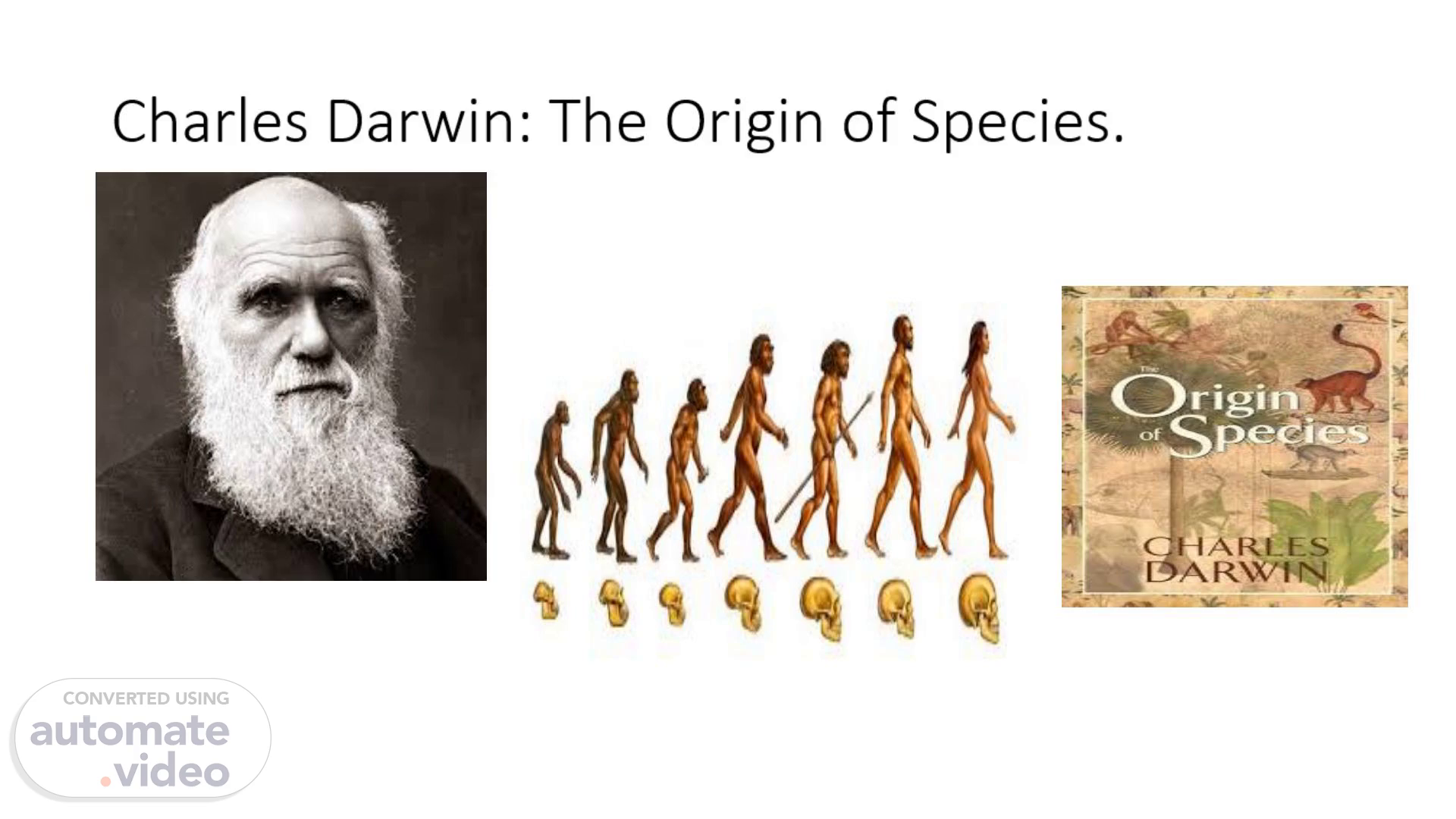Scene 1 (0s)
[Audio] In this video we will learn about Charles Darwin's work on Evolution titled The Origin of Species and hopefully tell about some of the confusion that people have on his ideas for example many people mistakenly regard Darwin's theory of evolution as a declaration that life is progressing towards a perfect species. The phrase survival of the fittest is responsible for this mistake. In common usage the word fit has positive connotations. Being Fit is better than being unfit, however in the realm of darwinian evolution being the fittest simply means being the best adapted to a particular environment. If an environment favors weak cowardly and lazy organisms that know how to exploit the welfare system then such organisms are considered the fittest..
Scene 2 (50s)
[Audio] Having addressed some preliminary points of confusion surrounding Darwin's ideas we now move to Darwin's text itself. Darwin outlines his theory of evolution in the introduction. His first assertion is that more individuals of each species are born than can possibly survive, as a result a struggle for existence occurs between the individual members of a species. Darwin emphasizes that in this struggle the slightest advantage in one individual over another can determine which individual survives and propagates and which individual dies. These slight advantages or genetic traits are then passed on to Future Generations. Darwin names the process by which nature preserves and propagates slight advantages in a population, "natural selection". In order to differentiate it from artificial selection; artificial selection is the process by which man preserves and propagates specific traits in a population. Dogs are an excellent example of the effectiveness of artificial selection. All modern breeds of dogs descend from wolves. Man developed these different breeds by cultivating specific traits for thousands of years. Darwin concludes that if man can create such a diversity of dog breeds through artificial selection then nature certainly can produce the diversity of life that exists today..
Scene 3 (2m 15s)
[Audio] We have seen that man by selection can produce great results and can adapt organic beings to his own uses, but natural selection is a power incessantly ready for action and is as immeasurably Superior to man's feeble efforts as the works of nature are to those of art, natural selection is daily and hourly scrutinizing throughout the world every variation even the slightest, rejecting that which is bad and preserving and adding up all that is good. The theory of evolution is very persuasive however Darwin perceives some objections that might arise in opposition to the theory. First if species have descended from other species by insensibly fine gradations why do we not everywhere see innumerable transitional forms. He answers this question by first defining the term species a species is a population capable of interbreeding. All members of a population need not be identical indeed members of the human species vary in height weight eye color hair color. When two groups of a population separate from one another natural selection cultivates specific traits that are advantageous to each group's unique environment. If the separation lasts long enough and the conditions of existence are sufficiently different, then two very distinct species will emerge..
Scene 4 (3m 33s)
[Audio] A transitional species between the two groups will not exist, they will share a common ancestor that is all. The idea that every species is connected in a circular fashion with gradual transitions from one species to the next is absurd. A tree is more representative of the evolution of species than a circle several species Branch out from one ancestral species some branches die in other words some species become extinct although the fossil record is not complete and might never be complete Darwin infers that missing links in the evolution of all species do exist. The second objection that many critics of Darwin's theory raise is the following; can we believe that natural selection could produce organs of such wonderful structure as the eye, of which we hardly as yet fully understand the inimitable perfection. In response to this objection Darwin notes that if scientists discover numerous gradations from a simple eye to a complex eye each gradation being useful to its possessor then the belief that complex eyes evolved is certainly tenable..
Scene 5 (4m 43s)
[Audio] Modern scientists have indeed identified successive stages of eye complexity from the single- celled eyes of microorganisms to the complex eyes of humans. Charles Darwin is the preeminent scholar in the science of biology. As we continue to explore the wonders of the natural world, let us remember the groundbreaking work of Charles Darwin and the enduring legacy of his revolutionary ideas..
